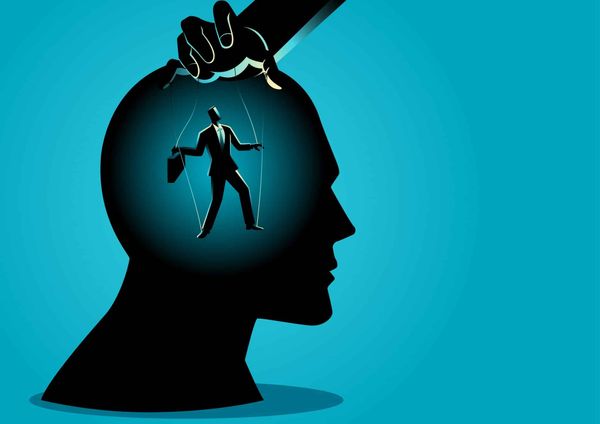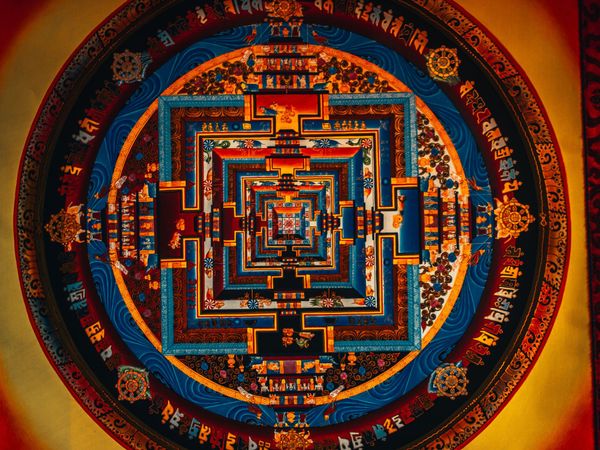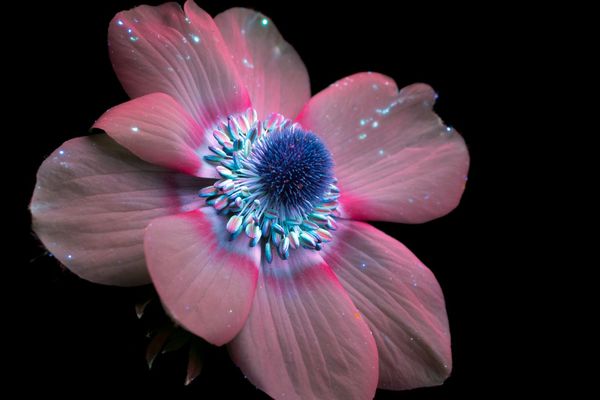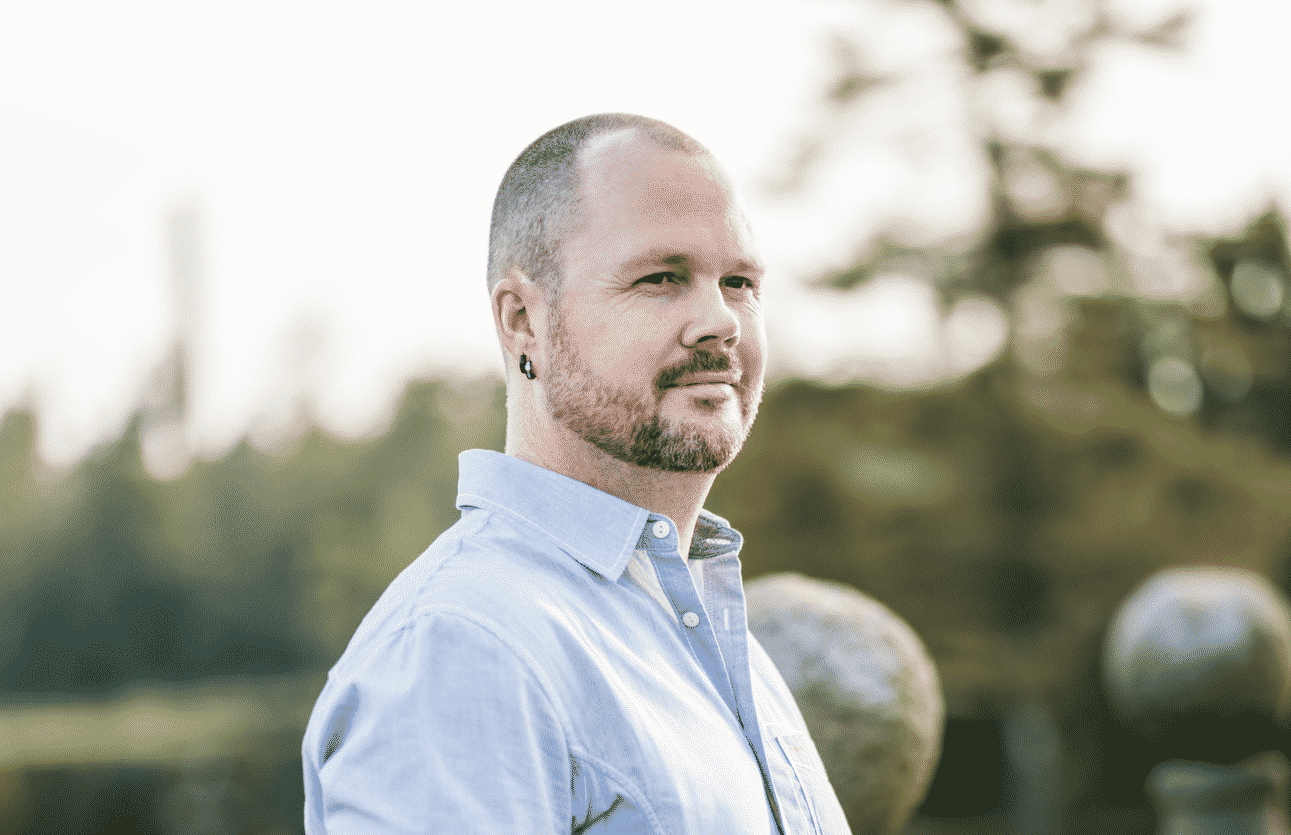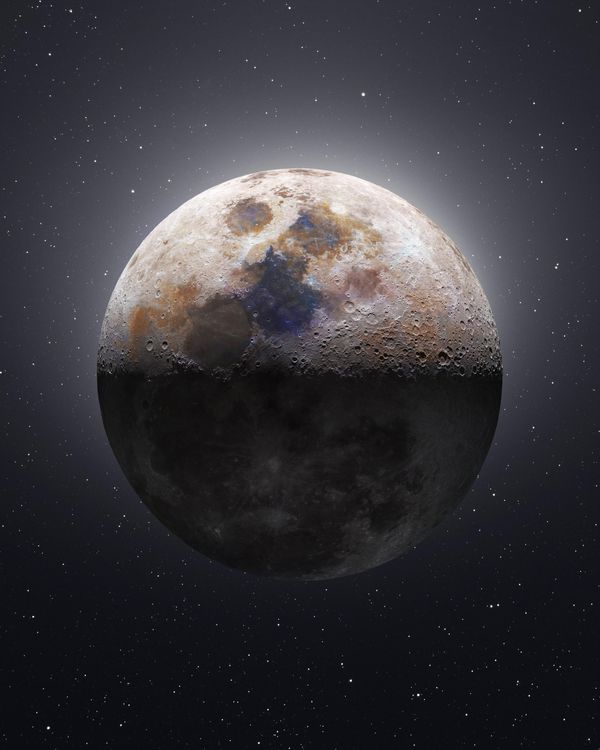Joseph Faulkner • • 8 min read
Midnight Gospel: Being, Doing, and the Search for the Self
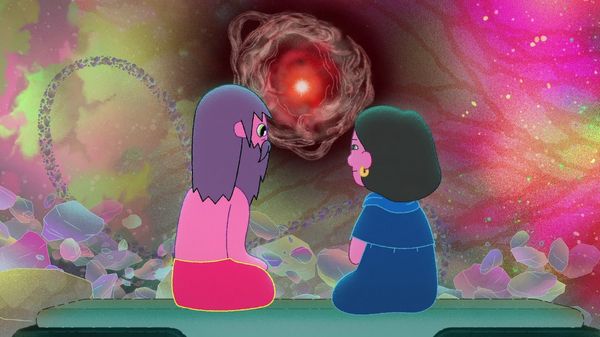
I recently watched the brilliant philosophically provoking, psychedelically animated Netflix series, The Midnight Gospel.
The show was created by Pendleton Ward (Adventure Time) and Duncan Trussell (Duncan Trussell Family Hour). Researching, I learned that the show was based on Duncan’s podcast.
In the final episode of the series, Duncan has a conversation with his late mother, Deneen Fendig. She was a psychologist. He is a standup comedian.
In the conversation, they talk about her impending death, grief, attachment, relationships, change, resistance, suffering, personal work, and inner growth. It is insightful, thoughtful, and filled with tenderness, a dying mother, and a grieving son, discussing life, death, and everything in between.
The words that follow are partially inspired by the topics discussed in that conversation in addition to my own meandering thoughts and experiences with mindfulness, the self, being and doing, dating apps, therapy, and inner growth.
I discuss ideas from books and talks that I’m currently mentally ingesting as well as personal stories. The quotes from Duncan and Deneen are all from the podcast episode.
I hope this resonates with you in some way, shape, or form.
On Being and Doing
“Suffering is when we are attached to a mental idea of what we think should be happening.”
— Deneen Fendig
We are in a constant state of doing, achieving, and planning the next thing we are going to achieve and therefore we are hanging tightly onto a reality that may or may not exist.
We may actually be actively avoiding, consciously or not, what’s real by being in this constant mode of doing.
I often, even now during quarantine, find myself micromanaging, planning my day, and living in the future, feeling as if I should be doing something at all times.
Everyday tasks like reading, writing, working, thinking, exercising, cooking, washing dishes, walking, or stretching lose their lustre when they become things to do, goals to be achieved.
I ask myself, how often am I multitasking in the name of productivity, getting things done and revelling in the fleeting pleasure that accompanies checking items off of my to-do list?
Of course, things need to be done.
But, rather than being mindful and enjoying an activity for the activities’ sake, there is an underlying feeling of not enough, or this should be different or this could be better or what am I going to do next. Joy and spontaneity are lost.
These thought processes are laced with negative self-judgment which leads to blame and feelings of shame.
By constantly planning my next activity, or ruminating on an old one, I’m living in the future or the past, which is to say, I’m not living in reality. The only reality. The present moment.
Meditation is a good example to use.
When I’m sitting and not achieving some desirable state, I think “I am doing this wrong, how can I change it? How can I manipulate reality?” I am unwilling to be with my current reality and what is coming up.
I’ll use dating apps as another example.
I message someone on the apps, don’t hear a response and tell myself I should have been more clever, more charming, more truthful in my intentions, rather than just allowing the natural openings and conversational flows, that come to my mind, exist (I’m also aware that In all likelihood, the reason I did not get a response has nothing to do with me). Yet, I tell myself I should have been different.
It can be broken down like this:
First, I am attached to an outcome, whether that be a desired state of mind while meditating or getting a date on the apps.
Then, if that desired outcome is not achieved, I begin to blame myself. “I could have changed this”.
Finally, the feeling of shame arises. I feel shame for doing things in a way that led to a perceived undesirable outcome. I was wrong and feel bad about being wrong.
The attachment to outcomes, blame, and shame do not need to exist.
In fact, with the relinquishing of attachment to outcomes, blame and shame cannot exist. What arises is an openness to the manifold potentialities of experience, mental spaciousness as well as an innate curiosity.
These desired outcomes are stories I am habitually repeating to myself. “This is the way I think things should be”. They are not this way, therefore I suffer.
Our ideas of the way we think the world should be are given abundant opportunities to bloom through our uninterrupted habitual thought patterns. These thought patterns are usually self-limiting and defeating. The roots of these patterns lie in early childhood experiences, traumas, social conditioning, and natural proclivities, your innate being (you-ness) interacting with the world at large.
Can we begin to identify and interrupt these habitual patterns and programs?
It feels like I am rushing through life.
I often come back to the idea of climbing a mountain to illustrate this point.
I’ve used this physical example to understand the ways in which I was and am mentally orienting myself in the world. I had an idea, or belief, that the most efficient, the best way to be in the world was to climb a mountain as quickly as possible. Get to the peak, without enjoying the journey.
In September 2013 I climbed Mt. Baldy, in Southern California, with a good friend. As other people took the long winding path to the top, my friend and I took the path of no path. We scaled the side of the mountain, which was more physically straining. We ran up through rocks, weeds, and sharp tall grass. We got cuts and scrapes and bruises along the way. We ran and leaped and jumped, not slowing down or looking back. Our mission was to get to the top as quickly as we could, and we did. The view at the top was stunning and was the same view we would have seen had we taken the slow winding path.
What did we miss by taking the quickest route?
We missed out on nature and scenery from the slow path plus the potential conversations and connections with other like-minded hikers.
What was the rush?
All of these minute beautiful details that comprise life were missed and are missed with this way of being in the world. This way of being, impatient and rushing, has negatively manifested in various aspects of my daily life.
In therapy, I wanted to change rapidly and would get frustrated when it wasn’t happening. I would blaze through books, not comprehending the material. Eating became shovelling, a deed to be done.
It feels as if I’m avoiding myself by the constant doing and planning mode, living in the future, or desiring the present to be different than it is. I wanted to do and understand things all at once, as quickly as possible. I wanted to take the shortest, quickest route to the top of the mountain.
Past.
Distraction.
Resistance.
Rushing.
Impatience.
Future.
I know the awareness of this is good.
What is being then?
To me, being is choosing and allowing yourself to experience the totality of your current situation. This includes the senses and your mental faculties. What am I thinking, doing, smelling, hearing, feeling?
What do the sensations on my body feel like? You can mentally ask yourself these questions. A quiet, attentive listening will reveal an answer. Observe.
The spaces in between the incessant doing and planning are where being flourishes. Mindful moments, where I truly encounter myself, uncover previously repressed and suppressed feelings and emotions. I was fearful of those moments because I’d been avoiding them for a long time. I’d been building a dam, holding things in. I thought an allowance of mindfulness or flowing of my suppressed and repressed emotions, or just mindfulness of where I am at this moment, would entirely break the dam, at once, and flooding of overwhelming proportions would occur.
What the mindful moments have actually created are small cracks in the dam. Some grief and fear here, a little joy there. Bit by bit things are changing, as the cracks open. The cracks get larger and larger and I’m able to handle it because I first dealt with the initial smaller cracks. All of the emotions, small and large, come into awareness.
Being takes courage and kindness.
Presence.
Awareness.
I am slowing down.
On Identity, Transformation, and Letting Go
“My individuality, my sense of individual identity is dissolving into the vastness where there are no boundaries. The individual identity that I have, therefore, wasn’t all that real” that’s the thing we can realize, the vastness is all there really is, with all of its mysterious appearances and disappearances and dynamisms and effulgences effulging out of the absolute.”
— Deneen Fendig
In therapy, I have been experimenting with naming aspects of my personality. For example, anxiety = Steve, caring what others think of me = Vanessa, and so on.
I can observe when Steve or Vanessa is running the show, acknowledge them, understand why they are there, and move on. These things want attention, they’re frightened. I’ve come to find that when you give them a bit of awareness, coupled with compassion they tend to diminish in size and change in feeling.
Initially, this process of naming felt awkward and strange but it’s become a useful tool.
As an exercise I can mentally tell myself, okay, anxiety (Hello Steve) I understand why you are here, you’ve served your purpose and thank you but I no longer need you. It need not be judgemental but understanding. It’s a practice that takes time and patience. I’ve come to like naming the parts. It encapsulates complex feelings into a single manageable entity, a name.
In Letting Go, David Hawkins talks about negative and positive emotions. He says there are sets of polar opposite emotions, positive and negative, and we have the ability to choose which ones to experience. Fear and courage is an example. These contrasting emotions are not necessarily linear, it’s more like the yin and yang symbol, they coexist together, at all times.
Recently, I was talking to my therapist about letting go of negative emotions and my resistance to feeling positive ones. He asked, “what is this part of you trying to achieve by denying the positive aspects of yourself?”
I’ve reframed the question to, why am I denying the shining and positive and holding onto my old ways? I’m holding on because they are familiar and personality deaths are painful. I thought I was one way but it seems now that it was a facade. That can be a painful yet illuminating realization.
Deneen says in this type of work “that which is false dissolves, and that which is real begins to shine”
Duncan likens personal transformations as forms of death, losing old parts.
Deneen says suffering is holding onto old ways.
I love the mental image the late, great Ram Dass conjures of people walking around, all day, telling themselves “this is who I think I am, this is who I think I am.”
A businessman walks around all day acting and thinking as a businessman does. These are roles we hold onto tightly. All of our actions are geared towards proving to ourselves and the world “this is who I am.” It’s a tight grip of holding with a side of resistance to change.
So, I ask myself, what is it I am trying to be?
I am learning to identify the roles I am playing, observing the ways in which I’m fulfilling these roles through my actions and thoughts, and then letting go.
This process leads to new fruitful ways of being in the world. I am learning to mindfully handle the subsequent grief at the death of these old patterns of behaviors and mental thought processes. The grief is always followed by periods of calm internal peace.
I am trying to be more than do.
Exist.
I am being kinder to myself and the various complex parts, they want a bit of attention and they are only present to protect.
Choosing a positive.
For now, the climb continues, with a bit more mindfulness, a bit slower, with a bit less resistance and a little more inner courage and shine. It’s a process, a beautiful breathtaking journey up a tall vast winding mountain.
Stay safe and healthy during these times. Now is a great time to practice slowing down.
Watch The Midnight Gospel if you have the means.
These are links to a podcast episode with Duncan and Deneen. The episode is life-affirming.
https://youtu.be/7gECNF2Ier4

